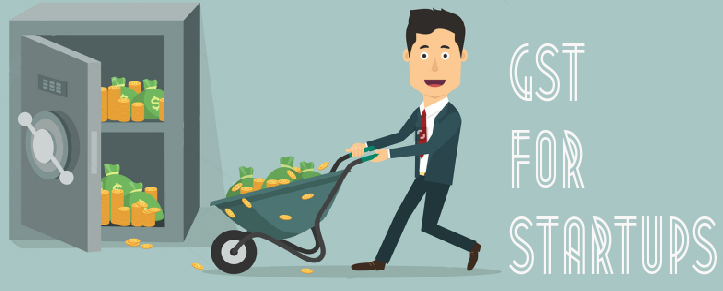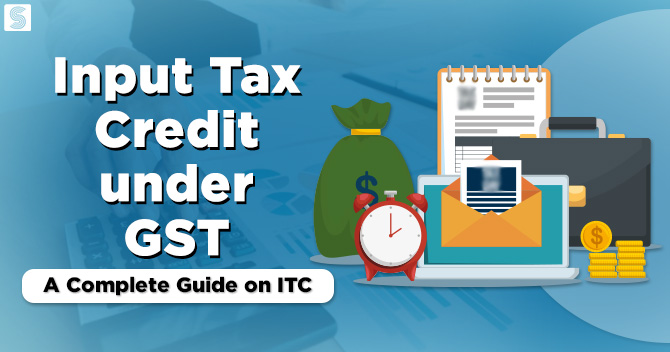Impact of GST on Start-ups

Swarit Advisors | Updated: May 08, 2018 | Category: GST
India is currently the 3rd largest startup superpower in the world and with projections of high paced growth for them; there is only one way ahead – UP. in this article we will discuss the impact of GST on start-ups.
There is no denial that the introduction of Goods and Service Tax was not in the ideal course as intended and expected. Yet it is worthwhile to note that the challenges rising are being responded to by the GST council in an efficient manner in form of amendments, notifications, and clarifications. In the ever-evolving economy, active steps according to the need of the hour are essential. Every aspect and content of economy is to be researched for and the necessary advancement may be made accordingly.
Table of Contents
What is GST?
Goods and Services Tax is an integrated, destination-based indirect tax on consumption of goods and services, levied at every stage, on the value-added, right from manufacture up to the final consumption, the burden of which will be on the final consumer. A dual GST system has been introduced in India from 1 July 2017. This shall facilitate the ease of doing business, better compliances, and a well-structured tax regime. It does not differentiate between goods and services and is expected to reduce tax evasions.
What is a Start-up?
A startup company is a newly formed entrepreneurial unit keeping in mind the perceived demand for a particular product or service which has not been addressed at large and developing a viable business setup to earn profits from the gap.
The start-ups, like the other sectors, have faced both positives and negatives from the GST implementation.
Also, Read: GST Taxation In India.
What are the Positives of GST on Start-ups?
- Reducing the complexities
a consolidated form of tax instead of varied axes at both central and state level shall definitely bring down the complexities involved in dealing with the tax structure.
An easier GST registration which will call for simple scaling shall bring down the costing of the startups.
It shall not only bring in ease of running and developing a startup but also to encouraging initiation of a new unit. Fewer tax computations happen to be positive of GST.
In addition to that, all the procedures are online and frequent steps are being taken to ensure a straightforward and less time-consuming mechanism to be in place. - Reduction of Tax Burden:
The threshold for GST registration is 20 lakhs annual turnover. This is likely to exempt many startups from the registration, and the profits shall be positively affected. - Easier invoicing and consolidated taxing is another benefit. The goods and services are all treated as one. The multiple taxes to be dealt with have now come under an umbrella. This shall bring ease into the management and functioning of startups.
- Logistic costs: The big companies were able to keep in place a strategy to help them to avoid the inter-state taxes, which were not only high but also unreasonable; which hampered the budgets of the small businesses and start-ups. Introduction of GST has now benefitted them to negate this logistic costs and providing a smoother road.
The entry taxes and complex procedures while entering in other states, leading to delays, has always prevented the expansion to other states, which now will not be an obstruction. - Compliances: Examining all the aspects, it is clear that the compliances required under this scheme are far less than earlier. Thus the time, cost and other resources dedicated to the compliances shall decrease substantially.
What are Possible Negatives of the GST Regime on Start-ups?
Along with there being positives, which shall benefit the business of start-ups in long run, there are some concerns that are facing today:
- Being a fairly new regime, Goods and Services Tax has brought confusion regarding GST registration procedures, exempted limits and various other aspects. With regular changes and notifications being published, a little disorganization, for the time being, is expected.
Most startups are not equipped with enough tax and legal expertise. This may result from more manpower and resources required to be dedicated. Though in long run, after the clouds of confusion have dispersed, there will be no looking back. But for the time being, the start-ups need to focus on both, development of their unit as well as the catching up with this latest tax regime. - GST has increased the tax burden for manufacturing startups. Under the previous laws, only the manufacturing business with a turnover more than Rs 1.50 cr had to pay the excise, whereas now, the limit has been set to Rs 20 lakh, which is drastically lower than earlier.
- E-commerce Ventures require to obtain GST registration mandatorily and no threshold has been set for them. This is bound to hamper those startups with financial constraint in respect to investments.
- The provision of Reverse Charge: Here, it is the receiver who becomes liable to pay the tax, i.e., reversal of the chargeability. If a vendor does not have GST registration, supplies goods to a person who is registered, then Reverse Charge shall apply i.e. the receiver shall GST not to the supplier, but directly to the Government. The registered dealer paying GST under the reverse charge has to do self-invoicing for the purchases made. For Inter-state purchases, the buyer will require to pay IGST and CGST and SGST has to be paid for the Intra-state purchase.
Also, for an e-commerce operator who is supplying services, reverse charge mechanism shall apply and he shall be liable to pay GST. The Central Board of Indirect taxes and Customs has issued a list of goods and services where this mechanism shall apply.
Despite the current jumble, it is projected that the procedures shall be made more clear and easier with time and each member of the economy shall be benefited by the Goods & Service Tax regime.
Read, Also: How is GST Registration Beneficial to US?.














